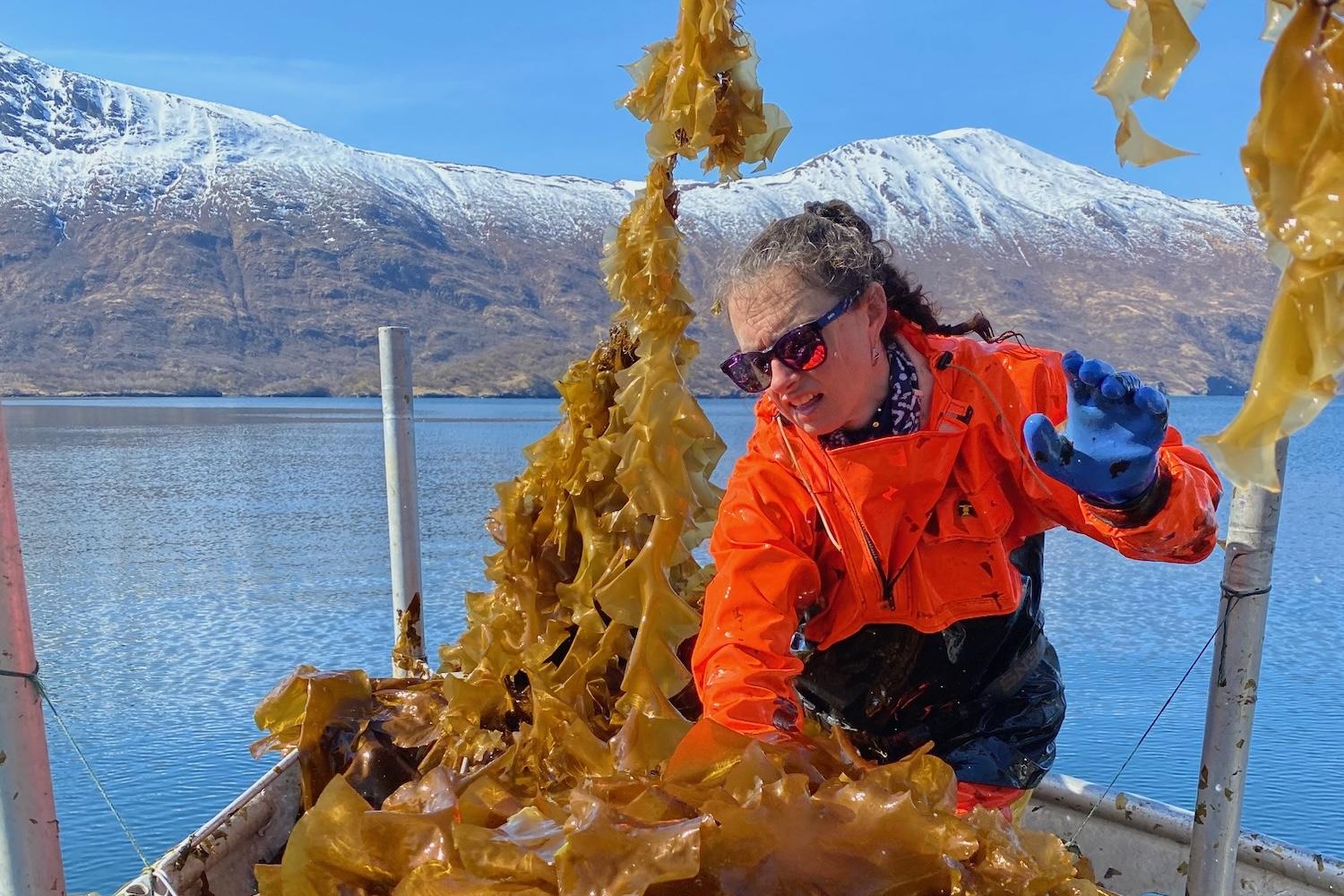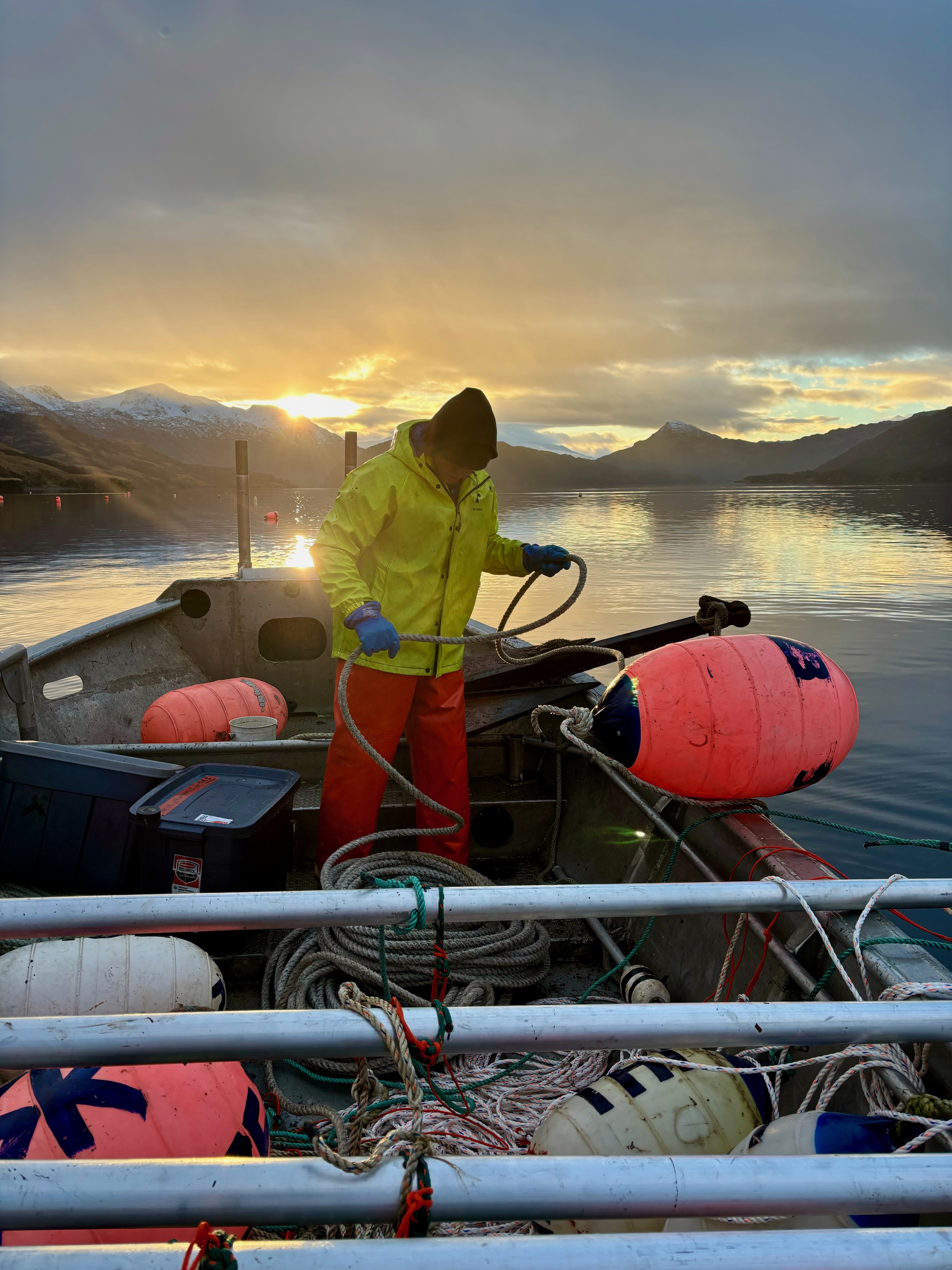
Images courtesy of Alaska Sea Greens
Fossil fuels aren’t only for energy. Chemical compounds derived from petroleum are used as colors, emulsifiers and texturants in all sorts of everyday products, including soaps, fragrances and even foods.
The field of green chemistry looks to replace these fossil fuel-derived ingredients with alternatives sourced from plants, but plants aren’t as predictable as oil and gas. Their properties often vary by source, making it harder to ensure plant-derived ingredients perform consistently from batch to batch. That means bio-based chemical alternatives are often only sourced from a single supplier for narrow and specific purposes. Companies can spend months and billions of dollars developing reliable sources of a bio-based ingredient before they can swap these alternatives into their products.
Food tech startup Marine Biologics aims to change this dynamic through SuperCrude, what it calls “the world’s first programmable biomass” developed from macroalgae. Often converted into fuels or chemicals, biomass is essentially just material that comes from microorganisms, plants or animals. Described by some as a “goopy seaweed slurry,” SuperCrude is derived by combining seaweed species from targeted locations around the world, such as the waters off Alaska, to create chemical systems designed to meet specific product requirements.
Ironically, the process is inspired by the oil and gas industry and looks to bring alternative bio-based chemicals to market faster, said Marine Biologics CEO Patrick Griffin.
“What it really comes down to is how oil and gas became, and continues to be, so scalable,” Griffin said. “Bio-based feedstocks are, by nature, inconsistent because they come from biological sources. That inconsistency is a major challenge, and it’s one of the first things we’ve solved with SuperCrude.”
The company designed a production process that standardizes the biomass composition. Based on a customer’s specific needs, the process can be adjusted to produce tailored chemicals, he said.
SuperCrude is the result of Marine Biologics’ proprietary refinement process. It starts with MacroLink, a chemical data platform built on the company’s extensive database of the molecular structures of seaweed species across the globe. Seaweed species are selected based on their unique qualities and stabilized as liquids tailored to meet specific product needs.
This type of oil and gas-inspired refinement process has already been applied to large-scale monocrops like corn and soy. “But there’s a real gap when it comes to alternative crops — some of which are not only highly renewable but also beneficial for the planet,” Griffin said. “The question becomes: What valuable crops haven’t been benchmarked yet? And seaweed jumps to the top of that list.”
Griffin describes seaweed as a “zero-input crop” because no fertilizers, pesticides or irrigation are involved. Seaweed has a rapid growth rate — up to half a meter a day — and is packed with chemical and biological compounds with unique applications across a wide range of industries, he said.
“It’s an underutilized resource, largely because there’s been so little investment in the early-stage, upstream work needed to integrate it into industrial systems,” he said.

The core challenge in creating SuperCrude is biology itself, because biology is naturally variable and inconsistent, it creates scale and cost barriers, Griffin said.
“Right now, a lot of companies are doing amazing work in product innovation — developing novel plastics, animal feed, agricultural inputs, biostimulants, cosmetics and more,” Griffin said. “But when it comes time to scale those products, the cost curve becomes a major barrier. That’s where we come in.”
The first release of products using the company’s seaweed database focuses on ingredients like emulsifiers, texturants and proteins that can be used in food products. As the company continues to develop the MacroLink platform, Griffin’s team sees a future where product developers can search specific product attributes and purchase a seaweed-derived crude that meets their needs. The approach “flips the traditional innovation model,” Griffin said. Instead of designing products from a patchwork of ingredients and hoping they scale, developers can start with an ingredient they know will perform as expected.
The company showed off food products like ranch dressing made with seaweed-derived emulsifiers at recent food trade shows, and leaders say its early work is just the beginning in terms of tapping seaweed as a sustainable chemical feedstock.
“We’re focused on solving upstream challenges so that others downstream can build their innovations on a more solid foundation," Griffin said. "We see our role as enablers — bringing the raw materials and infrastructure online that others can build on.”

Gary E. Frank is a writer with more than 30 years of experience encompassing journalism, marketing, media relations, speech writing, university communications and corporate communications.














